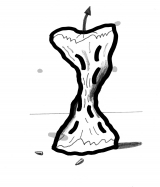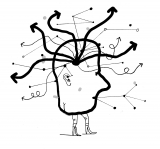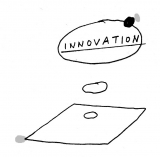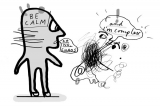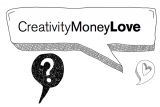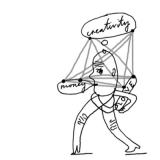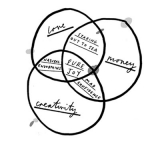Towards A More Creative And Green Economy
May 2013
The last five years have marked a turning point in the world economy, bringing about decisive shifts in global wealth and the structure of the international governance. Today the G-8 can no longer ignore the G-20 in the conduct of the international economic and development agenda, as emerging countries are...
After The Crunch: Revisited
April 2013
'After the Crunch' - a collection of short essays by artists, entrepreneurs, analysts, policy-makers, academics and financiers from across the creative and cultural sector - was published by the British Council and Creative & Cultural Skills in 2009. Over forty commentators were asked to present their thoughts on the future of...
Created in China
April 2013
John Howkins: China is the only part of the globe that is big enough and strong enough to go its own way outside the ambit of Europe and America. It's the only viable alternative we have - a different way of doing things. Philip Dodd: There's much talk within China...
The Creative Economy: Beyond Economics
May 2013
In 2009, we had no idea what a new, post-crunch British economy would look like. What we did know was that whatever shape a new economy took, it would depend increasingly on creativity. At the time, there was very little public recognition of this fact, prompting us to invite over...
Piloting chaos with integrity and inspiration
November 2011
What did you and your colleagues want to achieve with this education? We have often considered the KaosPilots as a positive answer to youth unemployment but, to many, it has meant more than that: influenced human potential, moved boundaries etc. The KaosPilots was our vision of a fantasy education, one...
Creativity Money Love
November 2011
In his recent MacTaggart lecture the CEO of Google, Eric Schmidt, spoke of the energy and inventiveness of Victorian Britain as ‘… a time when the same people wrote poetry and built bridges’. Most of us want that kind of richness and diversity to run through our communities. We all...
LOVE – a curriculum on human rights and education for peace
November 2011
Article 26.2 of the Universal Declaration of Human Rights states the role of educators in achieving the social order called for by the declaration: ‘Education shall be directed to the full development of the human personality and to the strengthening of respect for human rights and fundamental freedoms. It shall...
Schmidt, Leonardo and video games
November 2011
When Eric Schmidt delivered the MacTaggart lecture at this year’s Edinburgh International Television Festival, his views regarding UK education were widely publicised. Whilst most of the 560 comments on the BBC Technology pages subsequently focused on his surprise about computer science not being part of the UK schools curriculum, he...
The sheep conundrum
November 2011
From the point of view of our education system, creativity is a problem because it is chaotic. And systems abhor chaos. When we look around schools for our kids and see clean and tidy art departments adorned with carefully presented studies (or copies) of the works of ‘great artists’, we...
Invest in your creativity – get a job!
November 2011
‘Plays bass alone!’ This three- word description of a young person’s creative endeavours was once sent to me in my capacity as manager of the New Deal for Musicians (NDfM) programme. At first, I was miffed, to say the least, at the brevity of the statement; yet when taken in...
Arts organisations as sites of learning
November 2011
Arts organizations can advance knowledge because they are alternative sites of learning that can overcome some of the shortfalls inherent in school systems. The arts are non-linear, abstract and qualitative, in contrast to education systems which are linear, literal and quantitative. Society needs to be built upon alternative knowledges, not...
Don't set yourself to formula
November 2011
Imagine being constantly labelled and identified with limiting stereotypes. Well, that was my experience, as it is for many young black males, during most of my youth, which is the time when, like everyone else, I developed my identity and character. It was during this time that I created B.R.A.T...
Information plenty and knowledge famine?
November 2011
I am curious about knowledge, not in philosophical sense, but in a practical one. I worry about what it means to know something in a world that is increasingly complex, ill defined and interconnected: a world that demands that we develop, and that we ensure that our children develop, the...
Reading, Wroughting, Arithmetic
November 2011
The Russell Group of universities has recently announced that the more practical subjects at A-level and GCSE will not in future be considered ‘challenging’ enough to count as prerequisites for entry to the top institutions of higher education. Meanwhile, the Secretary of State has publicly differentiated between the serious subjects...
Creatures of habit
November 2011
For several years, my younger daughter Iris, who is nearly seven, has made sure that I get up and sit with her while she eats breakfast, watches TV or reads a story. When I am away working, she doesn’t follow the same routine, but when I am there she insists....
Designing the future
November 2011
Design and Technology was introduced as a statutory subject for all pupils from ages 5 to 16 in the first National Curriculum in 1989. It was a visionary move taken by the then Secretary of State, Kenneth Baker, and, in the 22 years since then, a huge amount has been...
A new renaissance in learning
November 2011
I graduated in the early ‘70s. It should have been an era of mass factory education, following the post-war baby boom. At one stage, that era saw a new school opening daily in the UK. Every school had near identical galvanized steel windows. Yet when my partner was in the...
The green goat
November 2011
In the first grade my father coloured a picture of a goat in his art book with green crayon. He took care to colour within the lines as told. Still, his teacher gave him a ‘D’ because ‘goats aren’t green.’ From that point on, my father never thought of himself...
Experiential learning
November 2011
Employers in many UK industries are struggling to compete in a global economy that makes increasing demands on the quality, price and ingenuity of their product range. Qualifications based only on knowledge and skills will no longer provide employers with the supply of the creativity that their business demands. FE...
The digital economy can thrive with a very affordable investment of 5p.
October 2011
The first P is for Pounds The digital creative industries in particular need access to finance in order to scale up to serve and monetise global markets. Investors must learn to understand the value of creativity and digital content. The second P is for People You can’t build a digital...
Digital discoveries
- Non Gamstop Casinos
- Non Gamstop Casinos
- Non Gamstop Casino
- Casinos Not On Gamstop
- Slot Sites Not On Gamstop
- Casino Sites Not On Gamstop
- Non Gamstop Casino UK
- Slots Not On Gamstop
- Non Gamstop Casino Sites UK
- Reputable Casinos Not On Gamstop
- Non Gamstop Casino
- Casinos Not On Gamstop
- UK Casino Not On Gamstop
- Non Gamstop Casino Sites UK
- Best Slot Sites UK
- Casino Sites Not On Gamstop
- Casino Sites Not On Gamstop
- Non Gamstop Casino UK
- Gambling Sites Not On Gamstop
- Best Non Gamstop Casino
- List Of UK Casino Sites
- UK Casino Sites Not On Gamstop


